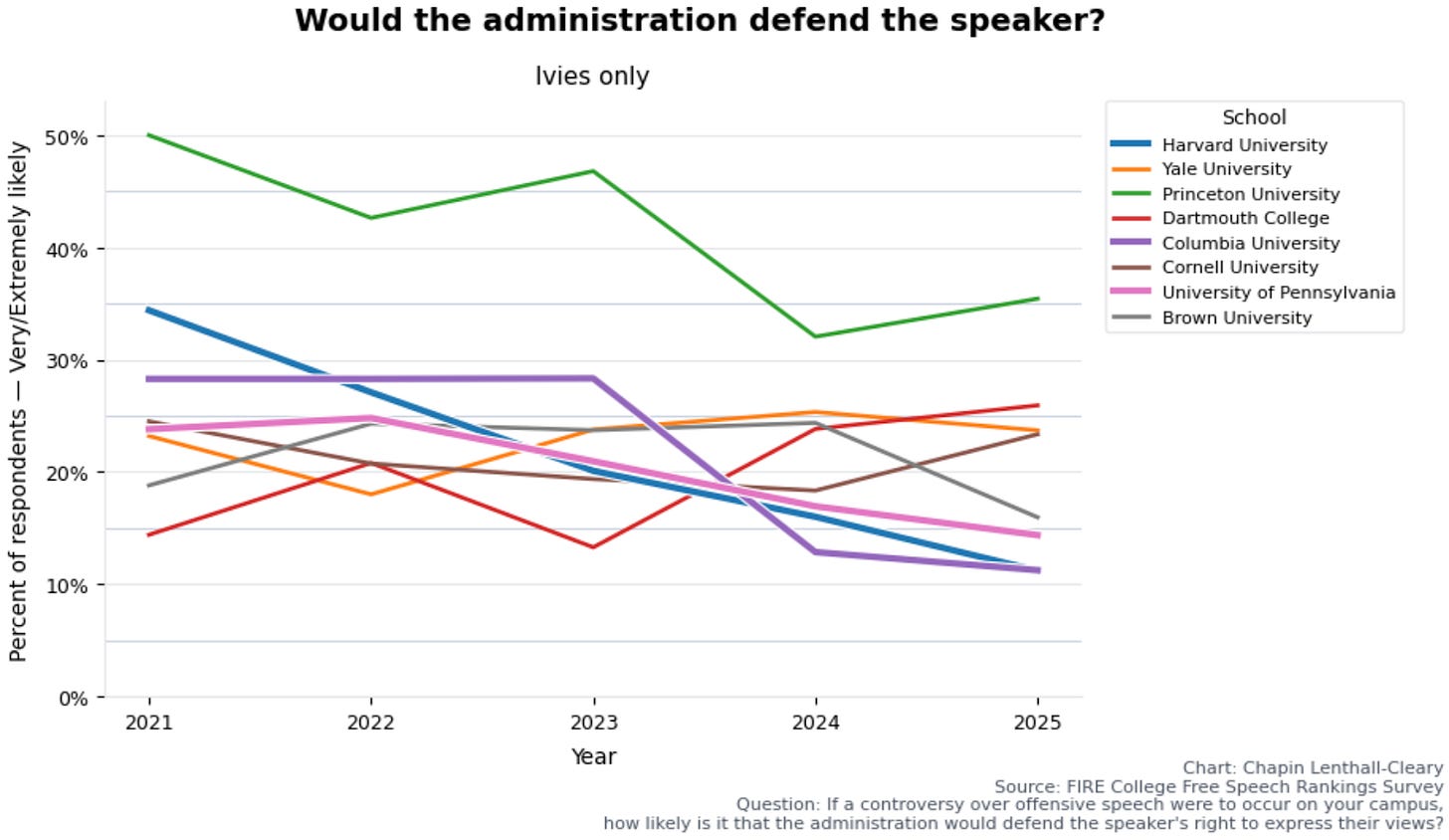Student trust in Ivy Leagues is declining — thanks to Harvard, Penn, and Columbia
Confidence in the Ivies has plummeted nearly 30% in four years
One of the main reasons we have universities is to give people the space to debate tough, even unpopular, ideas in the search for truth.
We give these institutions a lot of influence on the assumption they will prioritize that mission over any particular agenda. But as more people see universities as hostile to open debate, it’s crucial — especially for elite schools that draw national attention — that they prove they’re still worthy of that trust.
In our annual College Free Speech Rankings, FIRE measures trust by surveying students on how much their school’s administration protects free speech on campus. One question we ask is whether students feel the administration would defend a speaker if some students saw their speech as offensive and a controversy subsequently broke out.
When we first asked this question in 2021, a quarter of the students at public universities said it was very or extremely likely that their administration would protect the speaker’s rights. While mediocre, this figure has held steady and now sits at 24%.
By contrast, confidence in Ivy League administrations has plummeted nearly 30% since 2021, now sitting well below the national average. But not all Ivies are at fault. Three in particular share that dubious honor: Harvard, Penn, and Columbia. (Yes, Princeton declined too, but they’re still leading the pack.)
In 2021, a considerable minority of Harvard students trusted the administration to protect a controversial speaker. Since then, the Harvard administration has taken a chainsaw to this trust. The share of students who now think the administration would protect a speaker is less than a third of what it was four years ago.
In the same four years, trust has fallen by more than half at Columbia and nearly half at Penn. These places are supposed to be beacons of enlightenment that set examples for our society. Instead, they’re laughingstocks at best — and tyrants at worst.
For anyone following the news, this trend is hardly shocking. Harvard, Penn, and Columbia have all had presidents resign amid controversial circumstances. At Penn, for instance, former President Liz Magill’s decision to allow the contentious Palestine Writes festival contributed to her being forced out, while the administration not only used riot police to remove the encampment on the central outdoor space, College Green, but fenced the area off and lied to students in an email, saying anyone with a university ID would have access.
Clearly, it’s possible to avoid these issues. Remember, this isn’t a national trend. Each of these schools’ administrations lost the trust of their students by taking actions hostile to open debate. And if universities decided to put their sacred obligations to open debate above a petty desire to silence dissent, they could start to restore this lost trust.






No surprise at all. They have become places of woke/leftist indoctrination and DEI with merit, truth and science taking a backstage.
What school did the best on this question?